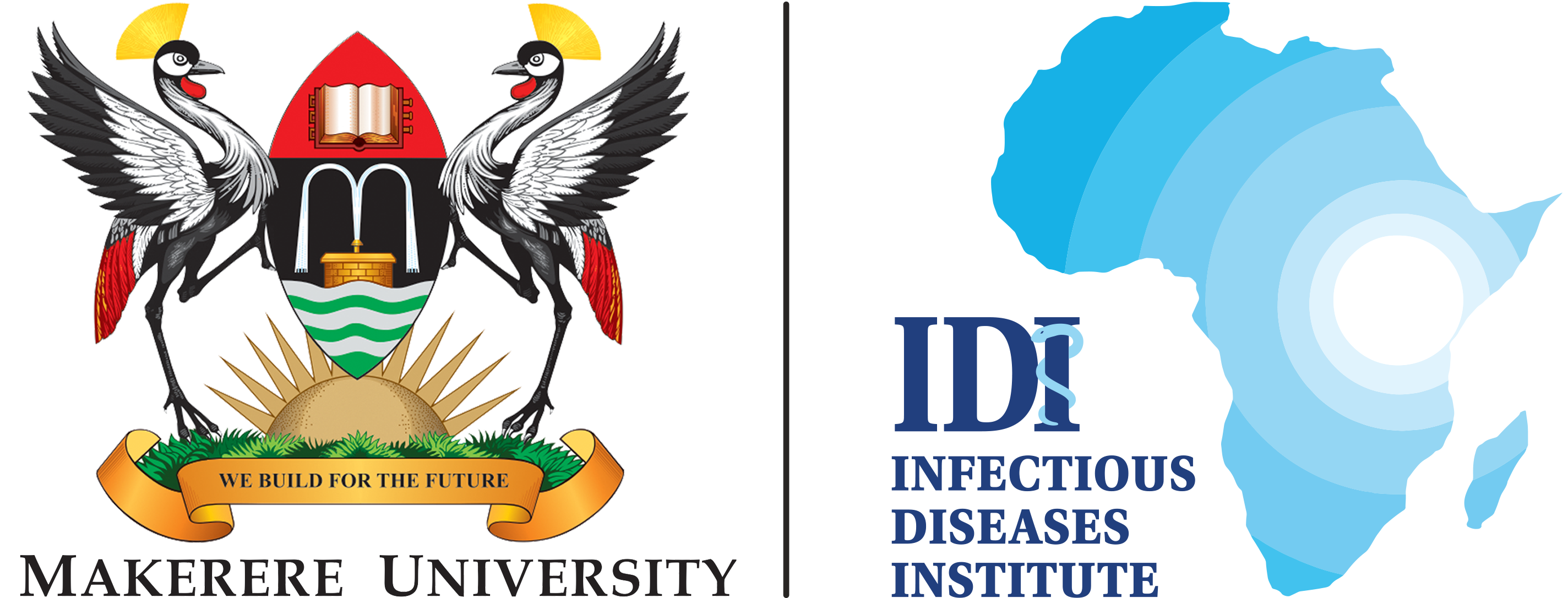- Associated Links
-
-
Our united network of partners and institutions share a vision for excellence, innovation, and impact. Together, we harness our combined strengths to create meaningful change.
-
-
-
- Careers
-
-
Our people are our greatest asset. We foster a thriving environment where everyone can flourish and make a difference. Join us in driving innovation and positive change through fulfilling career opportunities.
-
-
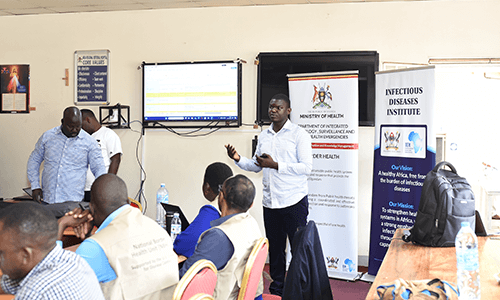
IHR Project
The CDC Strengthening Partnerships for Preparedness and Response in Uganda project aims to improve health security and build International Health Regulations (IHR) capacity. Key achievements include establishing public health emergency operation centres, enhancing disease surveillance, and supporting COVID-19 vaccination efforts, ultimately strengthening Uganda’s health systems.

Fleming Fund Grant
The Fleming Fund Grant aims to strengthen antimicrobial resistance (AMR) surveillance in Uganda through microbiology laboratory upgrades and data systems using a One Health approach. Key achievements include enhancing laboratory infrastructure, developing governance structures, and training healthcare workers to improve AMR detection and response capabilities.
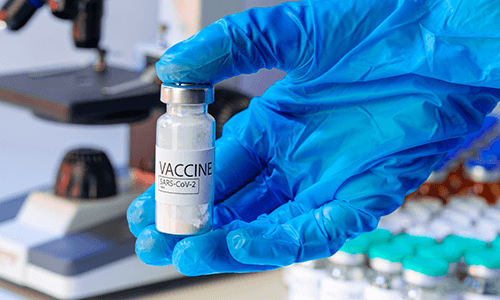
Saving Lives and Livelihoods
The Saving Lives and Livelihoods Programme's PROVE initiative aims to research vaccine effectiveness in 15 African countries while strengthening National Public Health Institutes for outbreak research. Key achievements include protocol adoption in 12 countries, training investigators, and fostering collaborations across Africa to enhance public health response.

NAPHS project
The National Action Plan for Health Security (NAPHS) project, funded by Resolve to Save Lives, aims to ensure compliance with the International Health Regulations in Uganda. Key achievements include launching the NAPHS, amending the Public Health Act, and enhancing multi-hazard preparedness frameworks for effective health security.
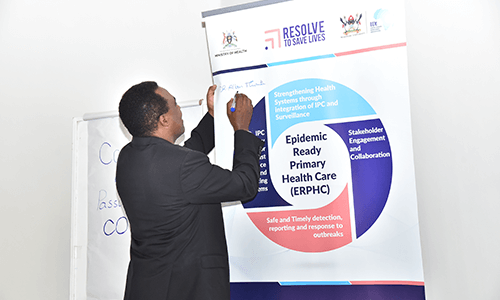
EPRHC project
The Epidemic Ready Primary Health Care (EPRHC) project, funded by Resolve to Save Lives, aims to enhance the detection and reporting of public health events through improved surveillance and infection prevention systems. Key achievements include launching the project, developing implementation documents, and training over 170 mentors across Uganda.
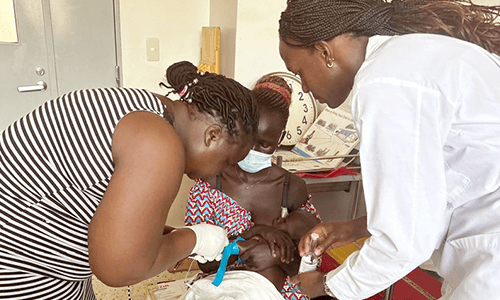
NISS Project
The National Integrated Sentinel Surveillance (NISS) project focuses on Acute Febrile Illness (AFI) surveillance in Uganda's regional referral and district hospitals. Funded by the US CDC, key achievements include protocol approvals, training for healthcare workers, initiating pilot surveillance, and developing an electronic data management system.

AMR Project
The Strengthening National Surveillance Systems for Antimicrobial Resistance project, funded by the US CDC, aims to enhance Health Care Acquired Infection surveillance in Uganda's Regional Referral Hospitals. Key achievements include developing a Surgical Site Infection protocol, digitizing data collection tools, and conducting readiness assessments across six hospitals.
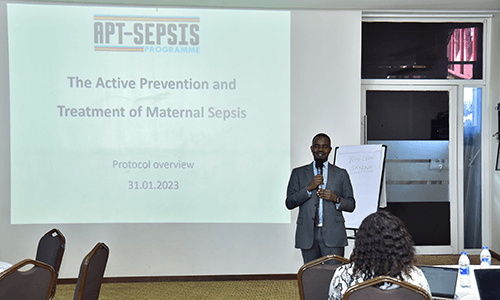
APT-Sepsis
Funded by the Wellcome Trust, the Active Prevention and Treatment of Maternal Sepsis (APT-Sepsis) project aims to reduce infection-related maternal mortality and severe morbidity in Uganda. Key achievements include conducting feasibility assessments at 38 sites, training 64 research assistants, and ensuring real-time data reporting across all sites.
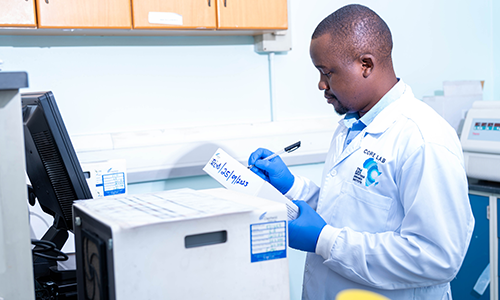
Yellow Fever Campaign
The Yellow Fever Mass Vaccination Campaign (YVMVC), funded by GAVI through the Ministry of Health, aims to roll out yellow fever vaccinations in North Western Uganda, particularly targeting refugee populations. Key achievements include supporting the Ministry to achieve a 72.5% vaccination coverage and ensuring timely fund accountability.
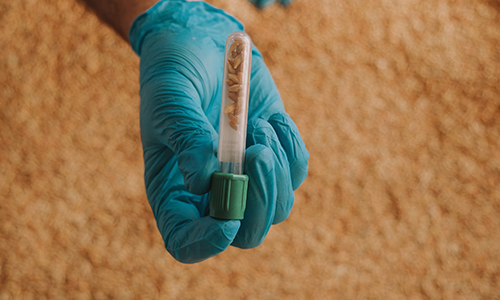
ACESO
Funded by the US Department of Defence, the Austere Environments Consortium for Enhanced Sepsis Outcomes (ACESO) aims to enhance clinical capabilities for emerging disease intervention and filovirus research during outbreaks. Key achievements include recruiting 43 participants for a sepsis study, training research staff, and effectively processing microbiology samples.
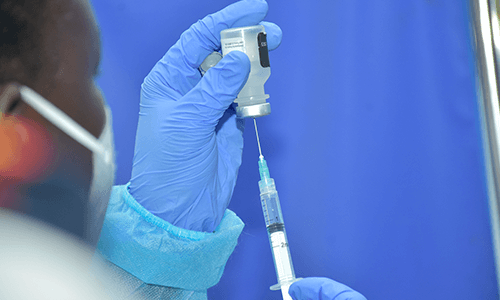
COVID-19 Vaccination
The COVID-19 Vaccination Action Network (VAN), funded by the Rockefeller Foundation through AMREF Health Africa, aims to enhance social mobilization for COVID-19 vaccination in five health sub-districts of Wakiso District, Uganda. Key achievements include training 1,968 vaccination champions and conducting 1,198 community drives to boost vaccine demand.

EGASP
The Enhanced Gonococcal Antimicrobial Resistance Surveillance (EGASP) project, funded by the WHO, aims to strengthen national surveillance systems for Neisseria gonorrhoeae antimicrobial resistance and genomic epidemiology. Key achievements include identifying four sentinel sites, training 16 healthcare workers, and processing 407 gonorrhoea isolates for genomic analysis.
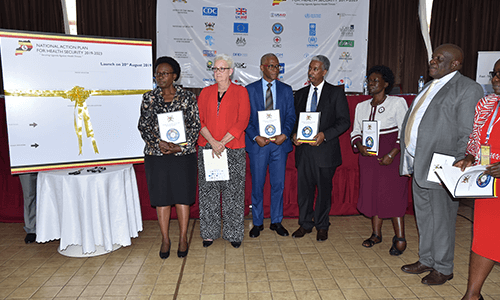
7-1-7 Project
The 7-1-7 Timeliness and Enhanced Situational Awareness (ESA) project, funded by Resolve to Save Lives, aims to improve outbreak response by ensuring detection within 7 days, notification within 1 day, and initial response within 7 days. Key achievements include piloting the framework in Uganda and its adoption by WHO Afro.
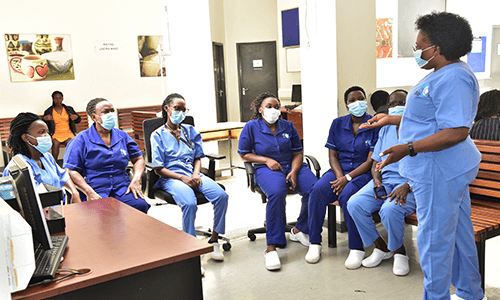
SPIRT study
The SPIRT study, funded by the Swiss National Science Foundation, aims to determine the prevalence and risk factors of leptospirosis and rickettsiosis among acute undifferentiated fever patients in Uganda. Key achievements include obtaining necessary approvals, developing a data collection system, and conducting participant recruitment at multiple health facilities.
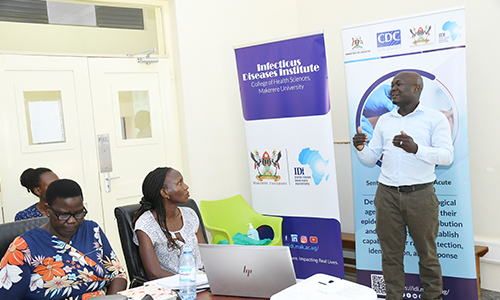
AFI-Pfizer study
Funded by Pfizer, the Current and Prior Viral Zoonotic Infections study aims to assess the prevalence of viral zoonotic infections among adults hospitalized with acute febrile illness in Northern and Central Uganda. Key achievements include recruiting 283 participants, expanding diagnostic capabilities, and supporting outbreak investigations for various infectious diseases.
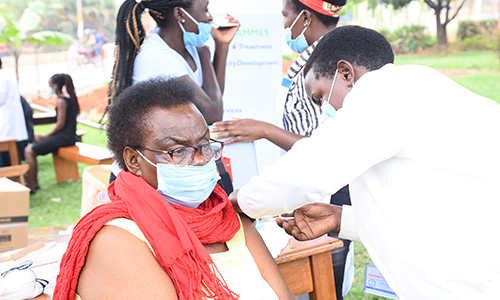
COVID-19 Test and Treat
The COVID-19 Test and Treat Implementation project, funded by the Clinton Health Access Initiative, aims to facilitate the roll-out of COVID-19 therapeutics, specifically Paxlovid (nirmatrelvir/ritonavir). Key achievements include ensuring effective logistics for Paxlovid distribution and training healthcare workers in pharmacovigilance across Uganda.
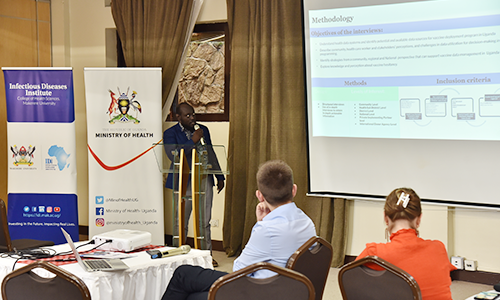
Vaccine Data Co-Lab
The Vaccine Data Co-Lab, funded by the UK Foreign Commonwealth and Development Office, aims to enhance Uganda's immunization programming through hyperlocal data utilization. Key achievements include coordinating three grantees, facilitating cross-learning meetings, adopting a data visualization dashboard, and implementing Smart Paper Technology in 17 facilities.
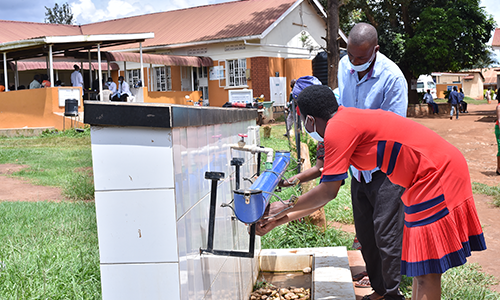
WASH in Health Care Facilities
The Water, Sanitation, and Hygiene (WASH) in Health Care Facilities project, funded by the National Foundation for the US CDC, aims to assess WASH conditions in Kabarole District's healthcare facilities. Key achievements include developing and piloting environmental cleaning SOPs, maintaining rainwater harvesting systems, and completing a district-wide WASH assessment.

